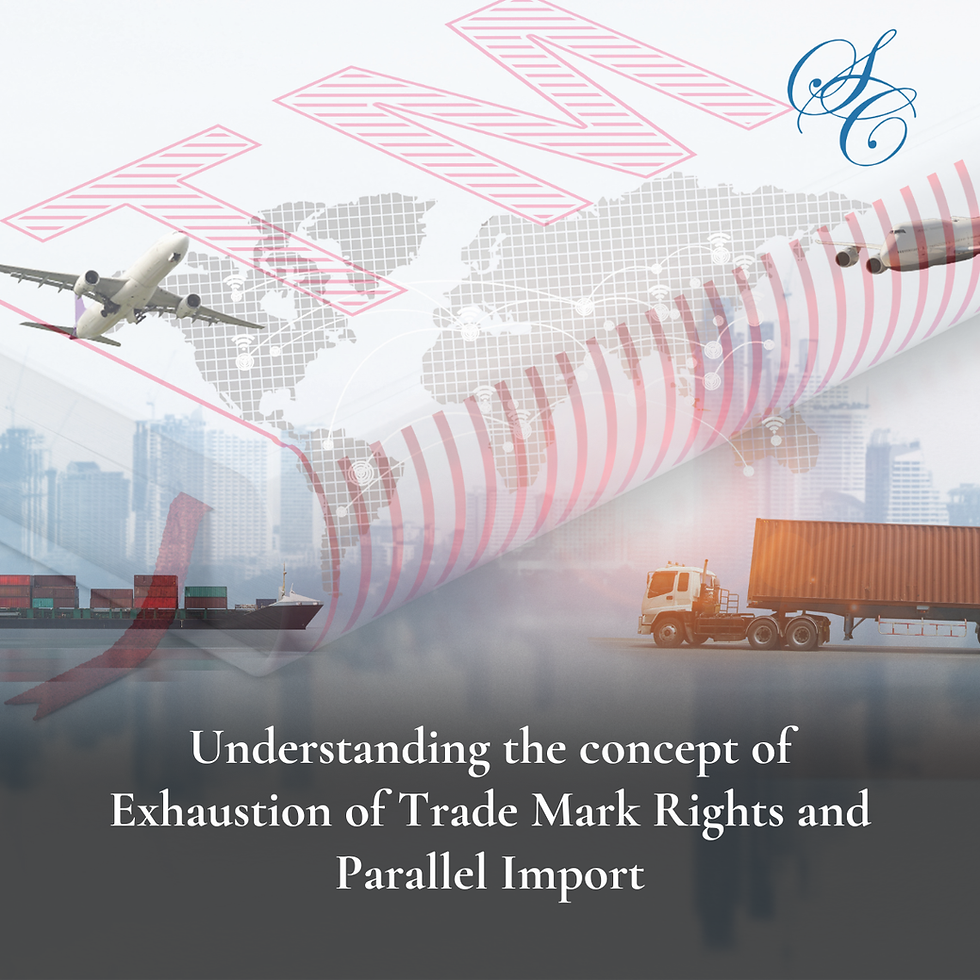Movie Titles — Protected Under Indian Law?
- Sarwajeet Singh
- Jul 1, 2022
- 3 min read
With the advent of the digital era and consequent ease of accessibility, the entertainment industry has increasingly become a larger part of an individual’s life. With large viewership and fan-base for movies one among the few key decisions the entertainment industry often battles with is the naming of a movie.
The title of a movie is seen as an identifier of the work as a whole. Titles are integral, particularly from a marketing perspective as they perform the function of catching the audience’s attention, set the tone for movies and possibly also accord recall factor to movies. Some memorable movie titles include the iconic Sholay and The Godfather. Given the brand and recall value that a title can generate, one may construe it as his/her intellectual property and thus it becomes essential that one prevents its unauthorized appropriation by others.
The question that arises is – what are the possible modes of protection available to a movie title in India?
It is customary in the Indian entertainment industry to ‘register’ movie titles with various associations in the industry such as Indian Motion Picture Producers Association, Film and Television Producers’ Guild of India and the Western India Film Producers’ Association. However, these associations, do not grant any legal rights but only conduct internal checks with one and another as a measure to avoid any duplication prior to granting ‘registration’. Nevertheless, these records could be helpful in ascertaining prior adoption/use of a title in legal proceedings.
Interestingly, when it comes to legal rights, a movie title, contrary to a movie script or a dramatic work is not entitled to copyright protection. In the case of Krishika Lulla and Ors v. Shyam Vithalrao Devkatta and Ors[1], the Supreme Court of India held that a movie title does not qualify in itself as a ‘work’ which is capable of copyright protection but is rather only a mere reference to the underlying original literary or dramatic work.
On the other hand, trademark protection can be obtained for movie titles. Indian courts have routinely held that titles of a series of movies, such as The Godfather, Die Hard, Mission Impossible do function as trademarks to indicate that each movie comes from the same source as the others and, therefore, such titles are registrable as trademarks.
However, as regards titles of standalone movies, courts have held that it is necessary to prove that such titles have acquired secondary meaning. In the case of Kanungo Media (P) Ltd. v. RGV Film Factory[2], the Delhi High Court listed a few factors that would be relevant in considering whether secondary meaning may be accorded, namely:
the length and continuity of use;
the extent of advertising and promotion and the amount of money spent; and
the sales figures on purchases or admissions and the number of people who bought or viewed the work;
In order for the title of a standalone movie to qualify for trade mark protection, it is imperative to show that the title has acquired distinctiveness and secondary meaning. If a movie title fails to satisfy the parameters for acquired distinctiveness and secondary meaning, it cannot be protected as a trade mark.
Since registration of a movie title as a trade mark confers ownership and grants an exclusive statutory right to use and exploit the title for commercial gain, proprietors of such titles, especially in the case of titles of a series of movies, should consider applying for registration of the titles as trademarks.
[1] 2015(6)ABR745
[2] 2007 (34) PTC 591 (Del)




Comments